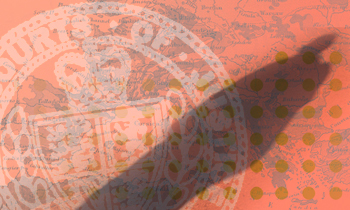The fraud on Lekoil – too much compliance, not enough thinking
Disclosure by independent oil producer Lekoil that it lost US$ 600k through a seemingly obvious scam has prompted renewed debate about the quality of governance among AIM-list companies.
Lekoil finished 2019 with just US$ 2.7m in cash, so it could hardly afford the loss. The company revealed that it paid Bahamas-based “Seawave Invest” an upfront arrangement fee for supposedly introducing a US$ 184m loan from the Qatar Investment Authority.
Meanwhile, armchair sleuths are having much fun describing Seawave’s hopelessly poor website and speculating on the quality of the due diligence performed. But beyond the sniggering, are the right lessons being learnt? Greyhawk believes there are three.
First, the scam on Lekoil is likely a type of advanced fee fraud that is in vogue.
In 2019, Greyhawk investigated two similar cases. In one, a group of individuals claimed to be intermediaries for a Gulf sovereign wealth fund. In another, the scammers established a business that was designed to look as if it were a sovereign wealth fund. The background was thorough: the would-be fund’s press releases had been written up by gullible Gulf-based newspapers; a very minor royal (think 300th in line to the throne) was paraded as chairman. The Gulf country’s Minister of Economy had even signed one of the fund’s recent “investment agreements” with his visiting counterpart from another country, the photos featuring prominently on the fund’s website. One solution: if you think you might be dealing with a fake sheikh, make clear at the outset that payment of the introductory fee will be made after the funds have been received.
Second, by commissioning a due diligence report based, in its own words, “predominately on open source information”, Lekoil was setting itself up to fail. It was needlessly curtailing the effectiveness of the due diligence. When you are deciding whether to wire a fifth of your cash to a group of individuals nobody has ever heard of in anticipation of critical funding that keeps your oil company afloat – public records won’t cut it. When investigating the attempted SWF scams cited above, Greyhawk certainly analysed useful open source information – but combined this (inter alia) with overt interviewing, under the radar interviewing, analysis of royal family trees, and social media forensics.
“Public records only” reports have become a default low-cost option for compliance professionals who want a report because they want a report (rather than wanting to know what a report might say). But this rigid approach fails to recognise that a “public records only” due diligence of a Saudi, Angolan or Bahamas company will yield a completely different quantity and quality of relevant information compared to a similar exercise for a Western European company, all other things being equal. In short, Lekoil chose a product, rather than a solution.
Third, it shouldn’t need a single knockout finding to kill a dodgy deal. A critical mass of minor niggles should suffice. Again, rigid compliance habits are to blame. The excessive claims made by vendors of commercial risk databases (which might aggregate sanctions data, PEP lists and negative news) have seduced too many compliance folk into believing that a “no match” against the database is a green light. Not so: the absence of information is itself a key finding.
Lekoil is chucking its advisors under the bus in the hope of maintaining some credibility. But – like the diligence of Seawave – we don’t yet know half enough to pass judgement. Investors should wait to see what further details emerge in the weeks to come.
Contact us:
"*" indicates required fields



